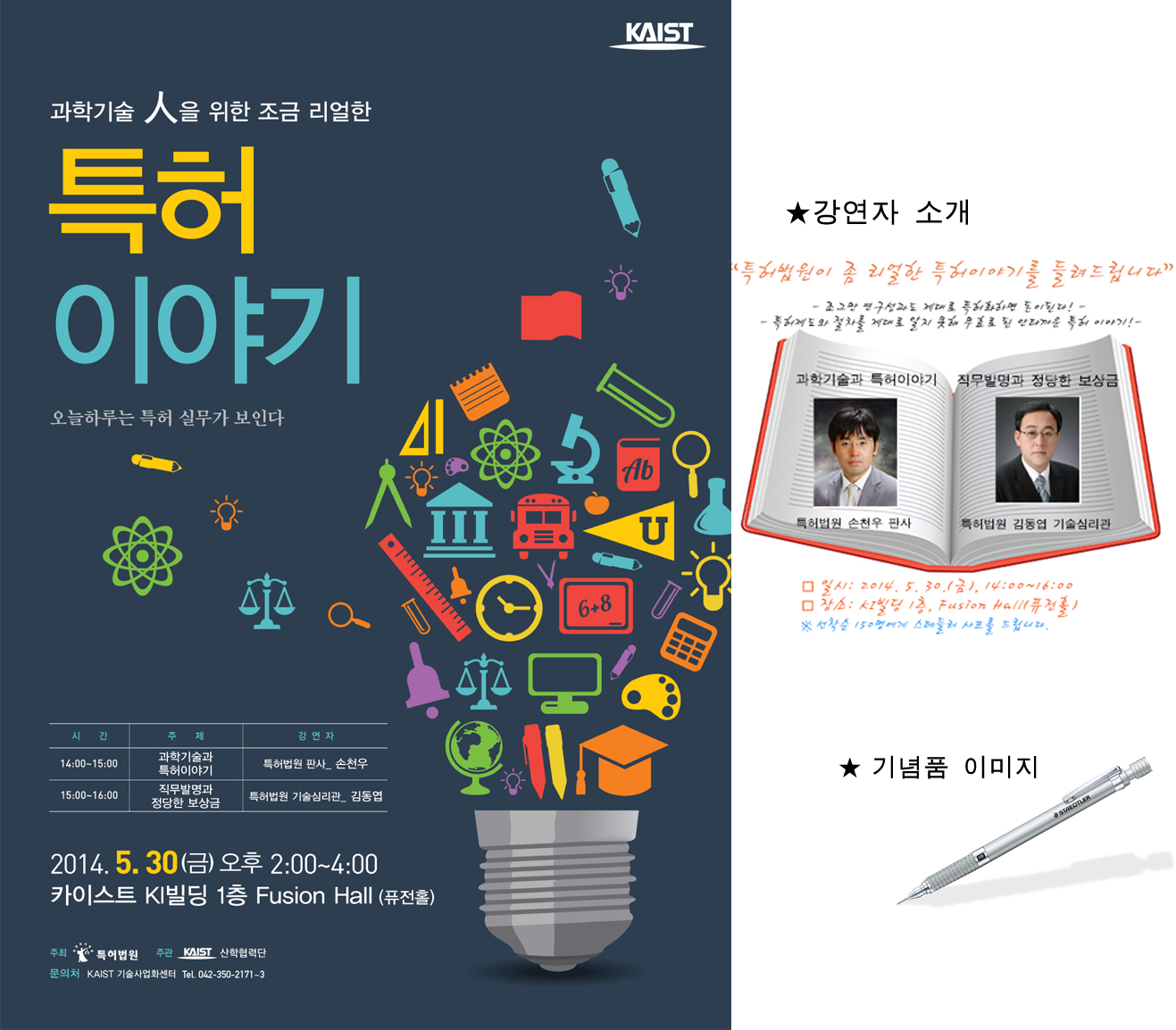On May 30, a lecture on patents was held at Fusion Hall, located in the KAIST Institute Building (E4). The event was hosted by Patent Court of Korea (commonly referred to as just Patent Court) and supported by KAIST Office of University-Industry Cooperation (OUIC). The lecture was in accordance with an agreement signed earlier that day between KAIST and Patent Court, encouraging cooperation between the two organizations in the field of patents.

The lecture was divided into two one-hour lectures. Judge Chun-Woo Sohn gave the first lecture, titled “Science, Technology, and Patents.” He started the lecture by introducing various types of patent holding companies (PHL) and gave examples of how companies such as Apple and Samsung used PHLs in lawsuits. He went on to say that while patents protect the intellectual property of the inventor, recently they are being used to extort individuals and small companies that have little or no knowledge in patent laws. Thus, it is important to have powerful patents that have a wide range of rights and low chances of evasion, and can easily be used to claim infringement of intellectual property.
Judge Sohn then showed examples of good patents and bad patents, and talked about how to come up with powerful patents. Many applicants make their patents broad, hoping to receive royalties from a wide range of applications, but by doing so, the patent can become weak, so the applicant should be careful not to jeopardize the integrity of the patent.
The second lecture titled “Job Invention and Reasonable Compensation” was given by Technical Advisor Dong-Yeop Kim. Advisor Kim said that many companies regard job inventions as an extension of work, and give poor compensation for them. He went on to introduce cases where employees sued their company for reasonable compensation. In Japan, the court determined that the employee did not receive reasonable compensation and ordered the company to pay approximately 60.5 billion Japanese Yen. The company appealed, and the amount was reduced to approximately 686 million Japanese Yen. There have been similar lawsuits in Korea dealing with reasonable compensation for job inventions. Advisor Kim concluded his talk by saying that one should not refrain from asking for reasonable compensation.

